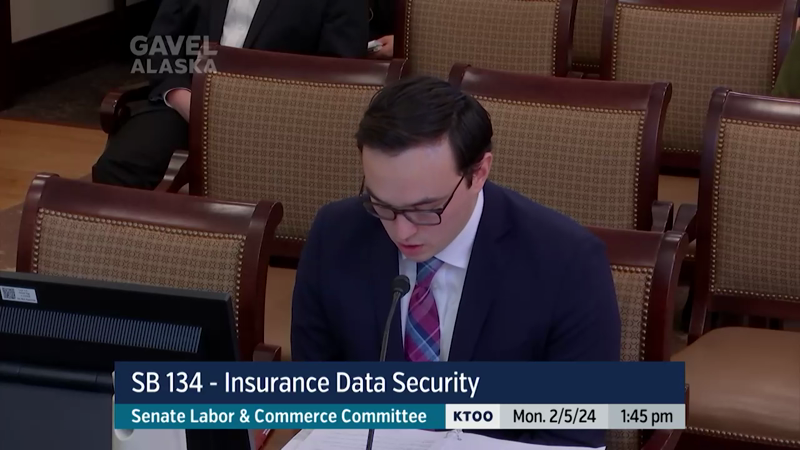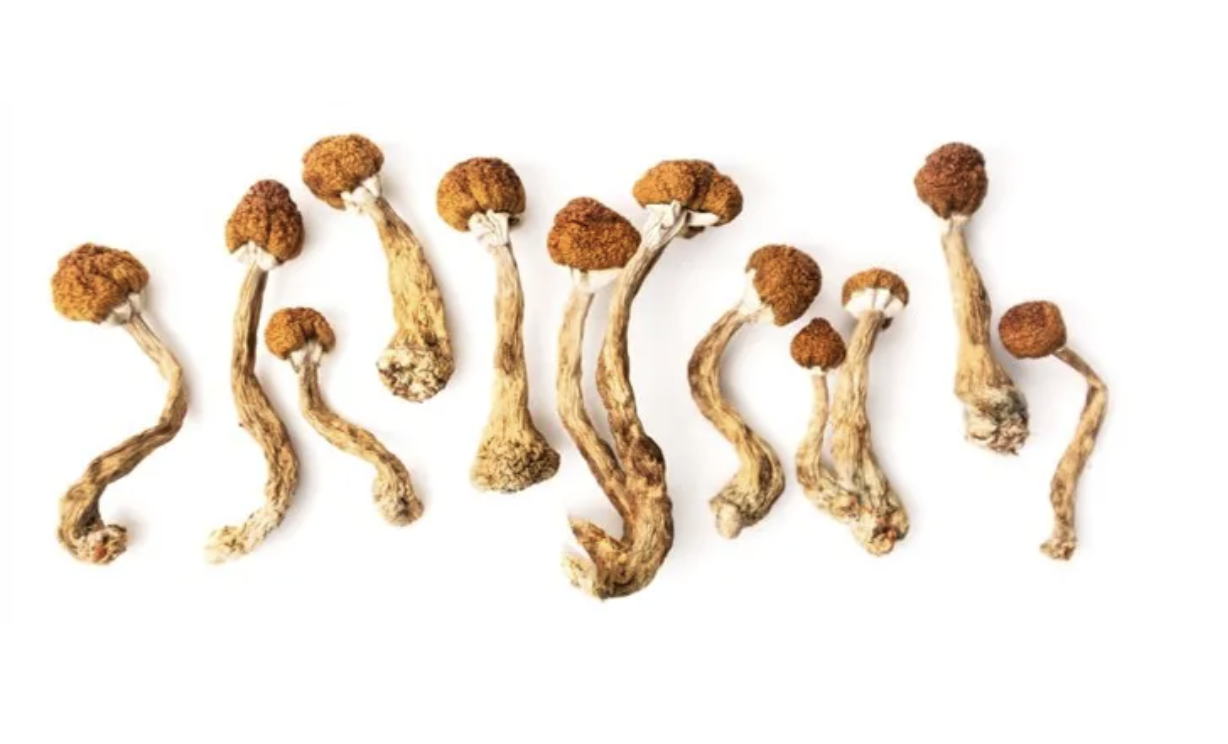On February 5, an Alaska Senate panel took testimony on a plan that would create a state task force to explore how to legalize and regulate the therapeutic use of psychedelics in the state. The legislation would not immediately change the legal status of the substances under Alaska law but is instead aimed at preparing the state for eventual federal legalization.
Members of the Senate Labor and Commerce Committee heard from the bill’s sponsor at the hearing and took public testimony, but did not vote on the measure.
Versions of the bill were introduced in both the House and Senate in January by Rep. Jennie Armstrong (D) and Sen. Forrest Dunbar (D), respectively.
“Crucially, this bill does not legalize anything,” Dunbar, a member of the Senate panel, told colleagues at the hearing. “Rather, it creates a problem-solving task force in anticipation of federal legalization of certain substances in controlled medical settings.”
The legislation would establish the Alaska Mental Health and Psychedelic Medicine Task Force under the state Department of Commerce, Community and Economic Development. The body would comprise government representatives and experts in mental health, psychiatry and more.
Members would be charged with assessing the potential therapeutic uses of psychedelics for mental health treatment, barriers to equitable access and “licensing and insurance requirements” for practitioners if any psychedelics receive federal approval by the Food and Drug Administration (FDA).
Dunbar noted in his comments that Alaska has high rates of veteran suicide and domestic violence, which he said “underscore the urgency of exploring innovative mental health treatments.”
“Research shows the effectiveness of psychedelic-assisted therapies in treating PTSD, depression, anxiety and substance use disorders,” he added, “conditions highly prevalent in Alaska, particularly among veterans.”

Under the bills as introduced, the task force would meet at least four times before submitting a report with findings and recommendations to the legislature and governor by December 31, 2024.
“What barriers exist in implementing such therapies in Alaska? What regulations are needed for practitioners to ensure safe integration of psychedelic medicine? These are some of the questions that the task force will explore,” Dunbar explained.
Most speakers during the hearing testified in favor of the proposal, including a psychologist, a military veteran of 34 years, an Alaska native healer and herbalist, a graduate student in mental health counseling and a member of the state’s Marijuana Control Board.
“Currently, psilocybin is in phase three clinical trials, meaning human trials,” said Bailey Stuart, the Marijuana Control Board member, “and I do see the future of mental health medicine encompassing psychedelic therapy as an additional tool.”
“I believe it is important to the public health and safety of our residents that we begin having these discussions about what federal legalization of psychedelics looks like before this event takes place,” Stuart continued, “and discuss the framework on how these substances will be regulated.”
Only one speaker, from the nongovernmental Citizens Commission on Human Rights in Seattle, spoke against the proposal at the hearing, arguing that more information is needed about psychedelics before making them more accessible to patients.
“This bill anticipates that there will be federal action,” Dunbar said. “We want to have the licensing [and] regulatory framework in place.”
One requested change came from the Alaska APRN Alliance, which represents thousand of advanced practice nurses and nurse practitioners in the state. Stephanie Wrightsman-Birch, a nurse practitioner, said the alliance supports Dunbar’s bill but wants to see an amendment that would establish a dedicated seat on the task force for advanced practice nurses.
“We would like the opportunity to speak for our profession and for our patients,” she said, noting that “psychedelic therapy sessions, which can last between two to eight hours, are oftentimes provided by advanced practice registered nurses and licensed therapists.”
Dunbar said he considered the proposal a friendly amendment and that he would support its adoption.
He also pointed out that the bill is beginning its journey not in a healthcare committee, but in the Senate Labor and Commerce Committee.
“That’s intentional. That’s by design,” he said. “We’re not here to debate sort of the efficacy of the medicine itself or which substances should or should not be legalized.”
Instead, he continued, “this bill anticipates that there will be federal action, and then we want to have the licensing in place and the regulatory framework in place. And a lot of the detailed questions that will go into that will be addressed by the task force itself.”
A number of states have moved to enact similar bodies over recent sessions.
Micaela Fowler, deputy commissioner at Alaska’s Department of Commerce, Community and Economic Development, said the agency projects the change would cost about $320,200 in fiscal year 2025, $385,200 in fiscal 2026 and $325,200 in fiscal 2027. That would cover agency staff, travel to six meetings (rather than minimum four in the bill) and costs like legal support, printing and room rentals.
The temporary body would be dissolved at the beginning of Alaska’s 35th Legislature, which would convene in January 2027. The fiscal note anticipates no further costs associated with the bill beyond 2027.
A number of states have moved to enact similar bodies over recent sessions as interest in psychedelic medicines has expanded and researchers push for FDA approval of drugs such as MDMA and psilocybin. Dunbar said that unlike most others, his bill sets aside seats on the task force for Indigenous health care professionals and leaders.
“We want the Indigenous voice to be a part of this task force,” he said.
The Department of Veterans Affairs recently requested applications to research use of psychedelics to treat PTSD and depression.
At the federal level, FDA is actively considering a new drug application for MDMA as a possible treatment option for people with post-traumatic stress disorder (PTSD).
As the agency weighs the application, new standards from the American Medical Association have officially taken effect that assign psychedelics-specific codes to collect data on the novel therapies.
In another milestone, the Department of Veterans Affairs recently issued a request for applications to conduct in-depth research on the use of psychedelics to treat PTSD and depression.
In California, meanwhile, a Republican lawmaker filed legislation in January to create a state workgroup that would be tasked with exploring a regulatory framework to provide therapeutic access to psychedelics like psilocybin and ibogaine and eventually allow health professionals to administer certain psychedelics to military combat veterans.
Massachusetts officials have separately certified that activists submitted enough valid signatures to force legislative consideration of a psychedelics legalization initiative before the measure potentially heads to the state’s 2024 ballot.
Nevada psychedelics activists said in late 2023 that they had a “productive meeting” with the Republican governor’s office about the need to expeditiously form a task force under a law enacted in 2023 in order to inform future reform—including the possible legalization of plant-based medicines.
In January, the Drug Enforcement Administration confirmed that the spores of psychedelic mushrooms are federally legal prior to germination because they do not contain the controlled substances psilocybin or psilocin.
Image via Oregon State
This story was originally published by Marijuana Moment, which tracks the politics and policy of cannabis and drugs. Follow Marijuana Moment on Twitter and Facebook, and sign up for its newsletter.





Show Comments